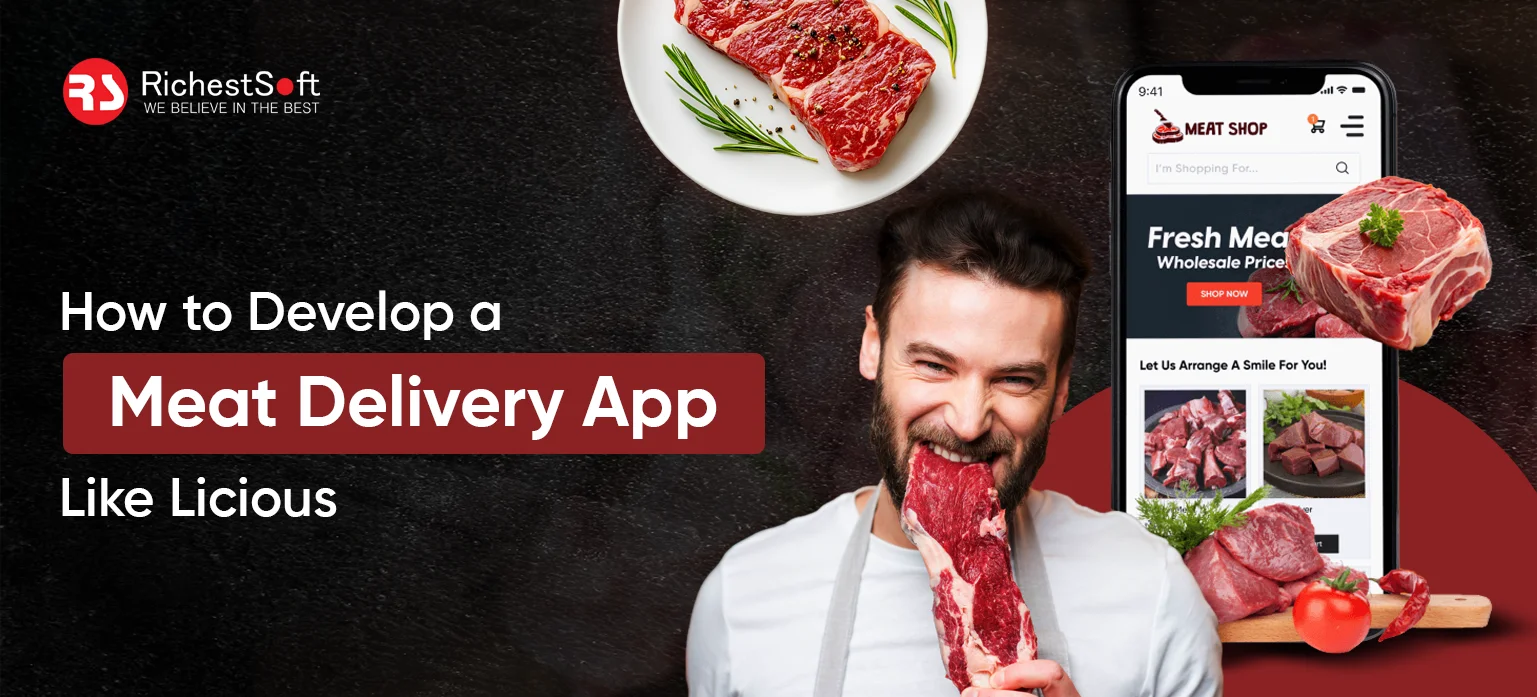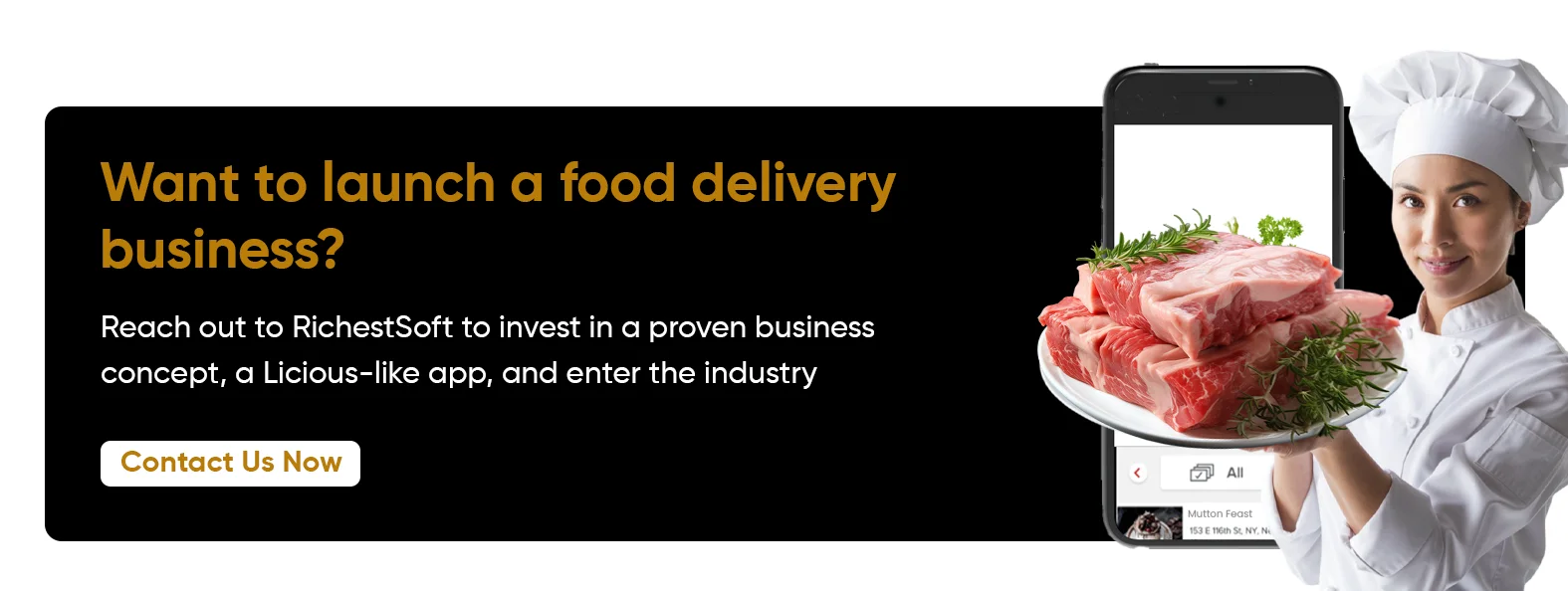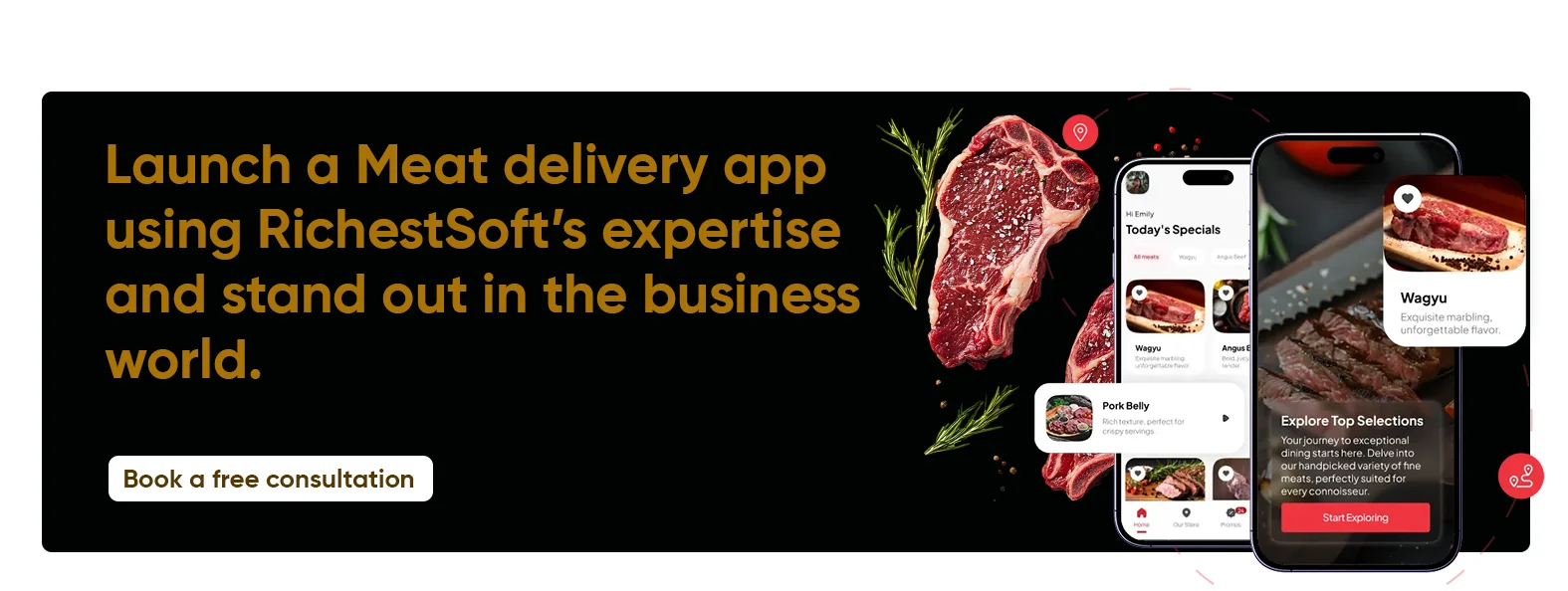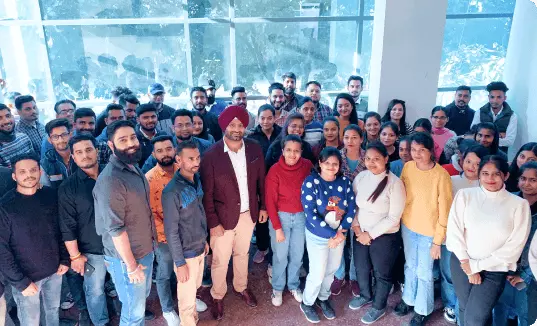September 4, 2025
Increasing demand for a simple, fast, and reliable way of delivering goods has been on the rise, and apps like Licious are already making a prominent position in the market. With its smart meat delivery services, the platform has gained strong attention among the audience, whether it’s a meat lover who wants to get instant meat or an impressed enthusiast looking to develop a meat delivery app like Licious. But why this sudden adoption among business minds?
Well, that’s probably because of its profitable business model. Licious runs on a vertically integrated and farm-to-fork model that guarantees a product quality delivered to the users who order from the platform. It also employs smart business-generating strategies that are convenient and value-driven, all of which make it unique among other similar service providers in the quick commerce industry.
So, are you looking to invest in a similar business? Keep reading this post! Below we have shared an indepth guide on how to develop a meat delivery app like Licious.
An Overview Of Meat Delivery App Like Licious
Licious is among the strong businesses today. The platform is famous due to its commitment to customer satisfaction, innovative business model, and leveraging technology for a seamless user experience. Licious directly controls its supply chain from sourcing meat to delivering it to the audience through its farms, processing centers, and, of course, cold chain logistics.
Users use this platform to order good-quality meat and seafood, which they receive in 90-120 minutes with full hygiene and temperature control, and this is exactly what makes this platform unique, providing a great customer experience through its offerings and D2C approach.
No wonder Licious’ business model is extremely profitable for you if you are thinking of entering the quick commerce business by investing in an on-demand food pickup and delivery app. Want to know how? Here is a quick overview of the business benefits of investing in a Licious clone:
- Cost-effective Business Launch: Building a Licious clone helps enthusiasts invest in a proven business model without spending time on unnecessary considerations and resources compared to building an app from scratch, giving entrepreneurs a budget-friendly way to enter the growing QCommerce market.
- High Return on Investment (ROI): Licious app offers fresh and quality meat and other non-vegetarian foods direct to users, which keeps the audience retained for more, building a strong long-term loyalty. However, investing in a clone with a similar model attracts most of the app’s user base, which ensures faster revenue growth and high returns for investors.
- Scalable business model: A Licious-style platform supports easy expansion into new regions and product categories, allowing enthusiasts to grow steadily while maintaining strong profitability in multiple markets.
- Competitive market advantage: The original app already includes advanced features, e.g., quick delivery options, D2C support, and technologies like artificial intelligence, blockchain, and other suitable APIs. This makes it unique and superior in the market; you can also build such a competitive edge by launching a Licious clone in the QCommerce sector.
- Sustainable long-term growth: With increasing consumer preference for hygiene and quality, a Licious clone aligns with market trends, ensuring consistent demand, brand trust, and sustainable growth for enthusiastic investors.
Steps To Develop a Meat Delivery App Like Licious
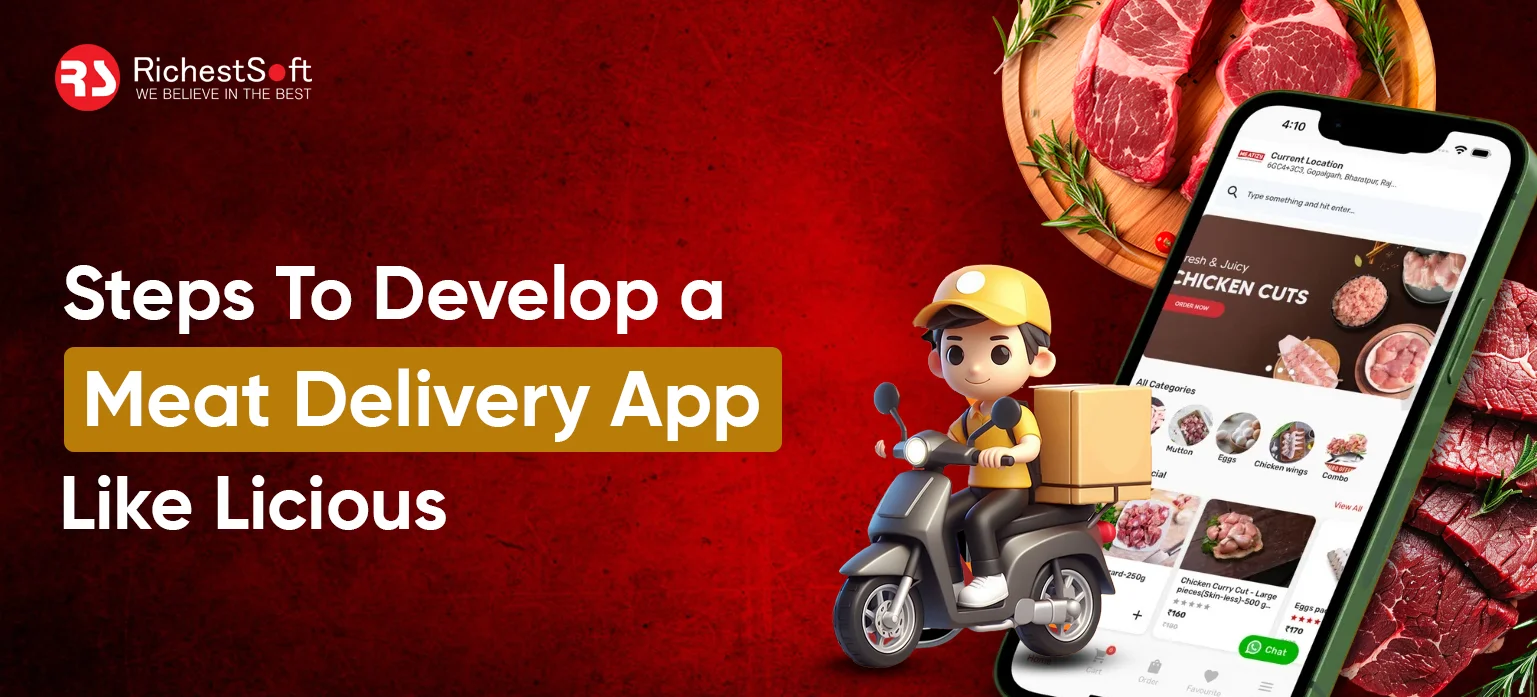
If you are thinking of investing in a white label meat delivery app like Licious, then let us tell you that rushing the build-up process can drain budgets and impact app performance after launch. Thus, no matter whether you are investing in a white-label clone, MVP, or building an app from scratch, careful planning is essential, which involves a clear vision strategy and smart quality execution in development steps.
So, want to know about the development steps of a meat delivery app like Licious? Continue reading.
Market Research
Understanding the business market is essential before starting with any development stage. Start with an in-depth analysis of what your targeted audience expects, whether in terms of food quality or app experience. Also, make sure to study the original app well and other competitors to spot gaps and opportunities. Check supply chains, delivery habits, and price ranges. This step sets the stage for a service that stands out and connects with real customer needs.
Investment Choice
Decide if you want to start small with a clone MVP or want to start development from scratch. Investing in a clone saves businesses from unnecessary investments, whether it’s in pricing or time. However, on the other side, building a Licious-like app from scratch requires a bigger budget and more time. But it allows enthusiasts to create the platform as per their unique vision and goals. So, choose wisely in this stage, as this decision impacts the overall project timeline, costs, and long-term growth path in the delivery market.
Platform Choice
Pick where to launch based on where your audience shops. Android app development dominates through a huge audience base, while iOS often attracts fewer but premium buyers. Both platforms together increase reach, but also need more budget. Several brands initiate with one platform, and later, when the business scales, they expand to another platform. The right choice connects you faster with the audience you want to serve.
Additional Integrations
Add smart tools that improve experience and trust. GPS helps track deliveries, while payment gateways keep transactions smooth. Notifications remind users of orders or offers. Inventory syncs with suppliers to ensure accuracy. A thoughtful mix of these features creates a simple, reliable app that customers enjoy using every day.
UI/UX Designs
Design the app like a friendly storefront people love to visit. Keep navigation easy, menus clean, and delivery times clear. Add filters, repeat order options, and quick checkout for speed. Consistent branding builds trust and recognition. A user-friendly design turns casual visitors into loyal buyers who return again and again.
Testing Platform Performance
Run tests to see how the app handles busy traffic, large orders, and quick payments. Verify the platform performance, update the functions properly, see if the GPS remains accurate, and ensure the app loads quickly. Also, consider safety for customer details at every step. Reliable testing before launch attracts your targeted audience and makes sure they return to your website and use your services.
Continuous Updates After Launch
After launch, keep the app fresh with new updates, seasonal offers, and new features. Fix issues quickly, check performance often, and add better options as customer needs grow. Regular improvements keep buyers engaged, bring repeat orders, and build long-term trust in your platform. A well-maintained app always stays ahead in the competitive market.
Cost to Build a Meat Delivery App Like Licious
An investment budget comes to mind before stepping into an app development like Licious. And let us be real with you that you can’t make an accurate budget without a proper strategy because cost can be influenced by several factors like design, integrations, and overall scope. Planning a budget early helps business enthusiasts set realistic goals and avoid unwanted surprises. The cost largely depends on whether you choose a clone app or custom development.
On average, if you are thinking of investing in a Licious clone or MVP with basic features, the cost can range between $25,000 – $80,000. However, on the other hand, if you want to build a custom platform with advanced integrations, whether features, technologies, or APIs, your budget can range between $30k- $250k.So, in case you need a proper budget evaluation, partnering with RichestSoft is a solid approach. We ensure to provide businesses with tailored solutions that fit different budgets while maintaining quality. With our experience, investors gain reliable apps that meet both market demand and customer expectations, ensuring long-term business growth.
Conclusion
Overall, the food delivery market is expanding as more users demand fresh, hygienic, and quick doorstep service. Building a platform like Licious is standing out as a proven business model with strong demand and high ROI. For business enthusiasts, this is the time to invest in a future-ready venture like this.
With the right approach, this vision can quickly turn into a sustainable source of revenue and long-term growth. For example, partnering with a reputable development company like RichestSoft. We build tailored development strategies and help enthusiasts enter the competitive market with a feature-rich advanced app.
 +1 315 210 4488
+1 315 210 4488 +91 99888 06489
+91 99888 06489